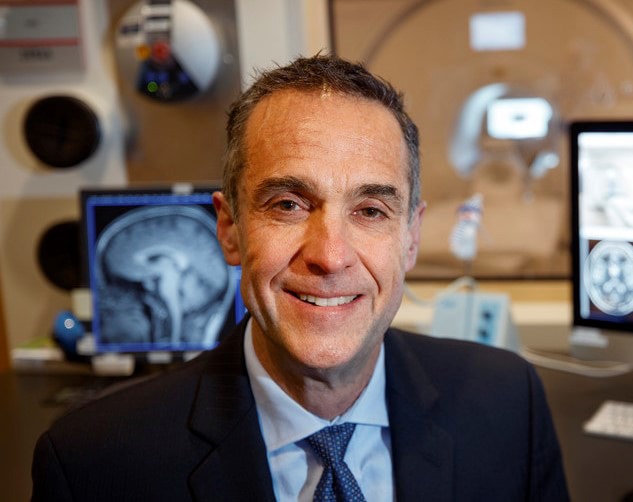Cary Savage
Faculty member Cary Savage, professor of psychology and director of the Center for Brain, Biology, and Behavior, (CB3) Clinical and Neuroscience and Behavior Programs, recently joined the psychology department. As the new director of CB3, Cary’s role was featured in Nebraska Today. We got in touch with Cary to learn more about him.

Where did you complete your training?
I received a B.A. in Psychology from the University of Northern Colorado and Ph.D. in Clinical Psychology from Oklahoma State University. I completed my predoctoral Clinical Psychology internship at the Massachusetts General Hospital/Harvard Medical School and stayed on for two postdoctoral fellowships, one in neuropsychology and one in neuroimaging.
Where have you worked?
After almost four years of postdoctoral training at Massachusetts General Hospital, I received a National Institutes of Health award, where I served as Director of the Cognitive Neuroscience Group and an Assistant Professor of Psychiatry at Harvard Medical School. I was also the founding Director of the Clinical Neuropsychology Track of the Massachusetts General Hospital Clinical Psychology Internship and a postdoctoral neuropsychology fellowship that was part of a larger Harvard consortium. After 13 years at Massachusetts General Hospital, I moved to Kansas City in 2003 to serve at Director of Functional magnetic resonance imaging in the Hoglund Brain Imaging Center at the University of Kansas Medical Center. I was eventually promoted to an endowed professorship and directed my own Center for Health Behavior Neuroscience for about 6 years before moving to Phoenix in 2016 to serve as Director of Neuroimaging Research in the Banner Alzheimer’s Institute. That is my long and slightly circuitous route to the University of Nebraska – I moved to Lincoln this January to direct the Center for Brain, Biology and Behavior!
What do you study?
I am interested in the brain basis of healthy and unhealthy behaviors. For instance, our National Institutes of Health award funds the use of functional magnetic resonance imaging to examine brain structural and functional predictors of weight loss and exercise adherence in overweight and obese groups. Our long-term goal is to identify biomarkers that can be used to develop personalized interventions to alter unhealthy behaviors. In addition, in 25+ years of research, I have used neuropsychological and brain imaging approaches to study many other conditions, including traumatic brain injury, dementia, obsessive-compulsive disorder, and other psychiatric conditions.
What would people be surprised to know about you?
I am a pretty hardcore outdoor enthusiast, particularly if it involves running on unpaved trails. I started trail running in Kansas City but, while living in Arizona, I discovered the joys of trail running in the mountains. For the past couple of years, I have regularly participated in high altitude trail and off-trail mountain races in Colorado. I plan to keep this up next summer and I spend most weekends seeking the hilliest and most technical trails I can find in this area to keep my skills and fitness up. The cold weather in Nebraska has enabled me to practice running on snowy, icy trails, wearing microspikes on my shoes. I also run on pavement when I have no other choice, but I find running to be most enjoyable when I’m exploring wild places.